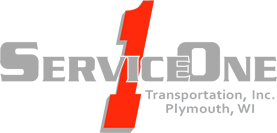Becoming an owner-operator in the trucking industry is a significant step toward independence, but it also comes with challenges. One of the most important decisions is choosing the right financing option for purchasing your truck. With the high cost of trucks, owner-operators need a solid understanding of financing options to make informed choices.
In this guide, we’ll explore various truck financing options available to owner-operators, breaking down the pros and cons of each to help you find the best fit for your business.
Why Financing Matters for Owner Operators
Purchasing a truck is a substantial investment, with prices ranging from $50,000 to over $150,000 for new models. Few owner-operators can afford to pay for a truck in full, making financing a practical necessity. The right financing option can make a huge difference in managing your cash flow, lowering your monthly payments, and helping you build equity in your business.
Factors to Consider Before Choosing a Financing Option
Before diving into the different financing options, it’s important to consider several key factors:
- Your Credit Score: Your credit score will heavily influence the type of financing you qualify for and the interest rates you’ll be offered. A higher credit score typically results in better terms.
- Down Payment: Some lenders require a down payment, which can range from 10% to 30% of the truck’s purchase price. The higher the down payment, the lower your monthly payments.
- Truck Age and Condition: Lenders often have stricter terms for used trucks. New trucks generally come with better financing options but at a higher overall cost.
- Loan Term: Loan terms typically range from 36 to 84 months. A longer loan term means lower monthly payments but higher overall interest costs.
- Business Stability: Lenders may look at your business history. Established owner-operators may find more favorable terms compared to those just starting.
Now, let’s explore the various financing options.
Traditional Bank Loans
Pros of Bank Loans
One of the most common ways to finance a truck is through a traditional bank loan. Banks offer structured loan options that may provide lower interest rates for qualified borrowers.
- Lower Interest Rates: If you have a strong credit history, banks can offer lower interest rates than other financing options. This can save you significant money over the life of the loan.
- Customizable Loan Terms: Banks often provide more flexibility in loan terms, allowing you to choose payment periods and structures that align with your financial situation.
- Potential for Larger Loan Amounts: If you’re purchasing a high-end truck, banks are often able to offer larger loan amounts than specialized lenders.
Cons of Bank Loans
- Strict Credit Requirements: Banks often require a strong credit score to qualify. If your credit score is below 700, you may face higher interest rates or even rejection.
- Longer Approval Process: Traditional bank loans typically take longer to approve compared to specialized truck lenders, delaying your ability to get on the road quickly.
Equipment Financing
Equipment financing is a popular option for owner-operators, as it is specifically designed for purchasing business assets like trucks. With equipment financing, the truck itself serves as collateral for the loan, reducing the lender’s risk.
Pros of Equipment Financing
- Easier Approval: Since the truck acts as collateral, lenders may be more willing to approve the loan, even if your credit score is lower.
- Competitive Interest Rates: Many equipment financing lenders offer rates competitive with traditional bank loans, especially for those with decent credit.
- Faster Processing: Compared to bank loans, equipment financing typically has a faster approval process, getting you on the road sooner.
Cons of Equipment Financing
- Higher Down Payment: Equipment financing often requires a higher down payment than other loan types, sometimes up to 20% or more.
- Risk of Repossession: Since the truck serves as collateral, missing payments could lead to repossession, leaving you without a vehicle and possibly with damaged credit.
Lease-to-Own Financing
For those who prefer lower upfront costs and monthly payments, lease-to-own financing offers an alternative to traditional loans. With this option, you lease the truck for a set period with the option to buy it at the end of the lease term.
Pros of Lease-to-Own Financing
- Lower Initial Costs: Lease-to-own financing typically requires less money upfront, making it a more accessible option for new owner-operators.
- Lower Monthly Payments: Monthly lease payments are often lower than loan payments, improving your cash flow.
- Option to Purchase: At the end of the lease, you have the option to buy the truck outright. If the vehicle hasn’t been suitable for your needs, you can opt to walk away.
Cons of Lease-to-Own Financing
- Higher Overall Cost: While the monthly payments are lower, the overall cost of the lease-to-own option may be higher than purchasing the truck outright with a loan.
- No Ownership Until the End: Unlike a loan where you build equity in the truck as you pay, lease-to-own agreements don’t transfer ownership until the final payment is made.
Commercial Truck Loans
Commercial truck loans are specifically designed for the trucking industry and offered by lenders who understand the unique needs of owner-operators. These loans can be used for both new and used trucks and often come with terms tailored to your business.
Pros of Commercial Truck Loans
- Industry-Specific Expertise: Lenders offering commercial truck loans are familiar with the trucking industry and can offer advice and terms tailored to your specific needs.
- Flexible Credit Requirements: Some commercial truck lenders are more lenient with credit scores, focusing on your ability to repay the loan based on business performance.
- Available for Used Trucks: Unlike some bank loans, commercial truck loans are often available for used trucks, providing more flexibility in your vehicle choice.
Cons of Commercial Truck Loans
- Higher Interest Rates: Commercial truck loans may come with higher interest rates compared to traditional bank loans, especially for those with lower credit scores.
- Additional Fees: Some lenders may charge additional fees for processing or administrative work, which can increase your overall loan cost.
Alternative Financing Options
If traditional loans and leasing options don’t work for you, there are other financing routes you can consider, including personal loans, online lenders, or using a line of credit.
Personal Loans
Personal loans can be used to finance your truck purchase, especially if your credit score is strong and you don’t qualify for a traditional business loan. However, personal loans often come with higher interest rates and shorter repayment periods.
Online Lenders
In recent years, online lenders have become an alternative option for truck financing. These lenders often have faster approval processes and more flexible credit requirements. However, interest rates can be higher than those offered by banks or equipment financing companies.
Line of Credit
If you already have an established trucking business, a line of credit can provide flexible funding to purchase a truck or cover operational expenses. Lines of credit often come with lower interest rates, but they require solid credit history and business financials.
Conclusion
Choosing the right truck financing option as an owner-operator is a critical decision that can impact the long-term success of your business. By understanding the available financing options—traditional bank loans, equipment financing, lease-to-own options, commercial truck loans, and alternative financing—you can make an informed choice that best suits your financial situation and business goals.
When evaluating these options, consider your credit score, down payment ability, and the overall costs associated with each financing method. With careful planning and the right financing, you can take control of your trucking career and set yourself up for long-term success.

